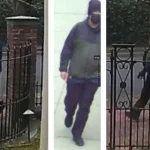

Los Angeles is undergoing a hotel construction boom. Representatives of the hospitality industry charge that a March 2024 measure, if passed by voting Angelenos, could bust it in a hurry by requiring hotels to fill vacant rooms with the homeless.
The Unite Here union of hospitality workers gathered over 100,000 signatures to place the Los Angeles Responsible Hotel Ordinance on the ballot in the California city of nearly 4 million people, the nation’s second most populous.
DEMOCRATS TARGET REPUBLICANS IN BIDEN DISTRICTS OVER HOUSE SPEAKER VOTE
The union did not reply to a request for comment from the Washington Examiner. But Kurt Petersen, co-president of Los Angeles’s Unite Here Local 11, told Forbes, “We know this is going to help solve our housing crisis.”
Others aren’t so sure it will solve any problems at all.
“The tourism industry would be negatively impacted and would see its occupancy plummet overnight,” Ray Patel, president of the Northeast Los Angeles Hotel Owners Association, told the Washington Examiner.
“Unite Here is fighting to fill all LA-area hotels with the same types of activities you see on Skid Row,” said Chip Rogers, president of the American Hotel and Lodging Association.
It’s not hard to see Los Angeles hotel patrons bolting for other options nearby.
Los Angeles, from its northernmost point in the San Fernando Valley community of Sylmar, stretches nearly 48 miles south to the port area of San Pedro. Los Angeles’s immediate neighbors include prominent cities such as Beverly Hills, Long Beach, Pasadena, and others whose officials would be happy to see their municipalities take in the hotel business that might otherwise land just a few blocks outside their limits.
Southern California city limits often zigzag and intersect so much that it can be hard to tell at first glance where a hotel is actually located. For instance, the Beverly Hills Marriott and the Residence Inn in Beverly Hills are nearly across the street from each other on South Beverly Drive. But neither is actually located in the iconic city known for its celebrity residents and guests, grand homes, and flagship stores along Rodeo Drive.
Rather, both are in the city of Los Angeles, a couple of blocks’ walk from Beverly Hills. It’s usually a distinction without a difference to hotel guests satisfied with the proximity to nearby glitz and glamour — and often lower nightly rates. But if those Los Angeles-based hotels, bearing “Beverly Hills” in their names, become homeless havens, would-be patrons are a lot likelier to shop around. Outside of Los Angeles city limits.
Guest and Worker Safety
Rogers, the American Hotel and Lodging Association president, predicted dire effects for Los Angeles hotels if the measure passes.
It would “jeopardize the safety of both hotel guests and workers, virtually destroy the city’s tourism industry, and cause massive job losses,” Rogers told the Washington Examiner.
Moreover, his group has some numbers to back that prediction up.
An AHLA poll of over 2,000 people conducted in mid-September found that “72% of Americans said they would be deterred from booking a hotel room in Los Angeles if hotels there are forced to house homeless people next to paying guests.”
It would mean less repeat business as well.
“That number jumps to 83% among those who have previously visited LA,” the poll found.
Unite Here is in negotiations with several Los Angeles hotels to try to push its workers’ minimum wage up to $30 an hour. There is some speculation that the union is using the ballot initiative as a bargaining chip to force concessions.
The union has the right to withdraw the initiative until early December, according to the City of Los Angeles Initiative, Referendum, and Recall Petition Handbook.
In addition to putting this measure on the ballot, Unite Here has been engaged in “rolling strikes” and walkouts and pressured companies not to do business with many hotels until a better deal for union workers is brokered.
The hotels that are negotiating with Unite Here have not taken the ballot measure in stride. The Coordinated Bargaining Group of 44 hotels in Los Angeles and Orange County went so far as to file unfair labor practice charges with the National Labor Relations Board and claim that the union has been “refusing to bargain in good faith” in a news release.
The Los Angeles Responsible Hotel Ordinance ballot measure has several items on it, including some more popular NIMBY provisions, which could muddy the waters. A July AHLA poll of 500 Angelenos found 46% supported the measure.
However, the Los Angeles City Council did not support it. The council was given a chance to pass it in August 2022. The measure flopped that hurdle with one yay and 11 nays.
Joe Buscaino, who was a councilman at the time, called it “the dumbest measure I’ve seen in my 10-year tenure as a city council member” and the “worst of all options as it relates to solving homelessness in the city of LA,” according to the California Globe.
The AHLA is pressing the Los Angeles City Council to do more on this matter.
“The Los Angeles City Council has yet to hold a hearing regarding the devastating economic impacts this policy would have on the city,” Rogers said. “AHLA is calling on the council to hold an economic impact hearing as soon as possible and to enact a resolution in opposition to Unite Here’s homeless-in-hotels ballot measure to more clearly inform the public of the council’s stance on the measure.”
Hotels — Not Health and Rehab Centers
If passed, the measure would require the city’s hotels to give daily vacancy reports to the city government, which would then issue vouchers to many of the city’s homeless residents. The homeless could then use those to check in for the night and could not be turned away for any reason.
There would be some compensation for hotels for the room rental, though compensation for property damage and lost business could be harder to come by.
Patel — who, as part of being president of the Northeast Los Angeles Hotel Owners Association, also owns a Welcome Inn — laid out some of the problems that the homeless bring to hotels.
Many of the homeless or “unhoused,” he said, “need wraparound services, which include substance abuse support, mental health support, around-the-clock security, food, and clothing.”
Patel pointed out that hotels “are not able to provide wraparound service” because that’s not their expertise. “This type of service requires certification training and special licensing,” he said.
He further pleaded that “placing those with mental and addiction problems will endanger hotel staff, paying guests,” and other, less problem-plagued homeless guests.
Patel also pointed out that people can visit Los Angeles without staying there and would be more likely to do so were this to pass.
“The traveling public would opt to stay outside of Los Angeles,” he said. “The geography of Los Angeles makes it easy to stay in neighboring towns, and they would commute to Los Angeles from the hotels just outside of the city borders.”
The hotelier lamented that should this all come to pass, it could negatively affect Los Angeles hotel workers as well.
“It will become difficult to retain staff, and we would lose our employees to hotels outside of the city boundaries,” he predicted.
As a result, Patel does not believe Los Angeles hotel owners, their staff, or “immediate neighbors” will be a good source of votes for the March ballot measure.
CLICK HERE TO READ MORE FROM THE WASHINGTON EXAMINER
Rogers added that many more Los Angeles residents may sour on the proposal.
“There are multiple issues included in this ballot measure, and that has the potential to confuse people. But the more people learn about the aspects of the measure dealing with homelessness, the less they like it,” Rogers said.





